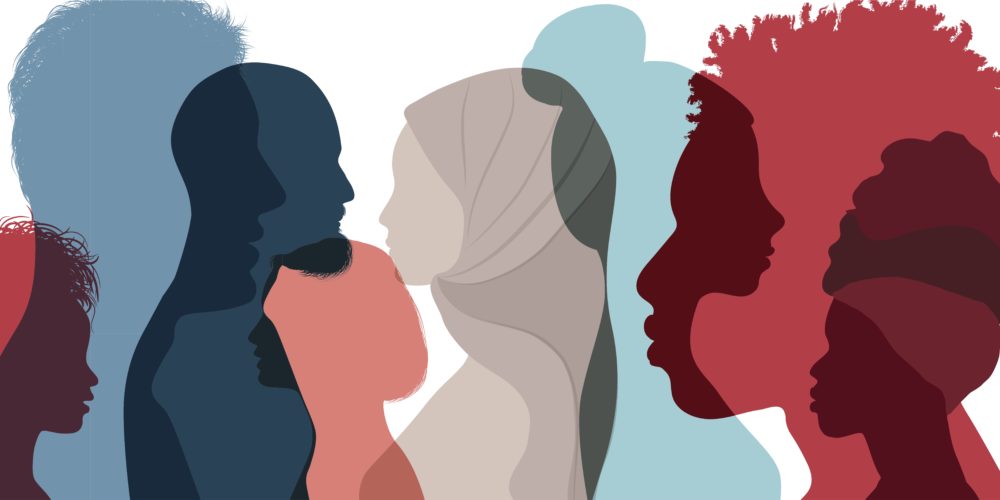 MELITUS/SHUTTERSTOCK
MELITUS/SHUTTERSTOCK
Over the last eighteen months, the COVID-19 pandemic has led to tectonic shifts in the ways our families, communities, workplaces, and institutions operate. As Stoneleigh Foundation Emerging Leader Fellows, we have seen firsthand how the pandemic has amplified long-standing inequities in our systems of care, including youth justice, child welfare, physical and behavioral health, and violence prevention. At the same time, this crisis has led to unprecedented innovation in addressing how young people and families access services.
This past June, we participated in a virtual panel discussion moderated by Stoneleigh Fellow and emergency pediatric physician Dr. Ruth Abaya, which focused on elevating equity and community voice in youth-serving systems. The following key takeaways from our discussion are aimed at practitioners, policymakers, and philanthropists working to advance systemic and social change beyond the pandemic.
Privilege begets privilege. Disinvestment begets disinvestment.
Encouragingly, the pandemic has accelerated long-sought reforms in many systems of care, including the expansion of telehealth services, the revision of legal processes to enable greater court efficiency and access, and the reimagining of probation to better meet the needs of youth and families. However, these reforms have not all been received equitably.  Those with limited technology access or proficiency have struggled to stay connected to healthcare and education services in our newly-virtual world. Youth and families of color, as well as LGBTQ+ youth, remain disproportionately represented in the child welfare and youth justice systems, despite overall population declines in those systems. These realities remind us that even as we celebrate innovations in service delivery and system supports, we must remain laser focused on ensuring those advancements benefit all — not just those who already have access to resources and power.
Those with limited technology access or proficiency have struggled to stay connected to healthcare and education services in our newly-virtual world. Youth and families of color, as well as LGBTQ+ youth, remain disproportionately represented in the child welfare and youth justice systems, despite overall population declines in those systems. These realities remind us that even as we celebrate innovations in service delivery and system supports, we must remain laser focused on ensuring those advancements benefit all — not just those who already have access to resources and power.
Youth engagement and community trust-building are essential tools of prevention

Courtesy of the Stoneleigh Foundation
Stoneleigh Foundation Fellows left to right: Leah Brogan, Kali Hackett, Cameron McConkey, Karissa Phelps, Dijonée Talley
Young people and their families are the most credible sources of knowledge about their own needs, circumstances, and communities. Yet too often, their voices and experiences are deprioritized or ignored by the systems intended to serve them. In the case of gun violence intervention efforts, for example, families are typically approached after a loved one has become a victim, once the trauma of violent loss has already been inflicted. In the child welfare and youth justice systems, the needs of families may be overlooked, or when considered, based on a static set of cultural norms and expectations within those youth-serving systems. And those who are disenfranchised in multiple ways, such as young parents of color, may have their voices neglected entirely due to siloed systems of care. To make matters worse, many of these systems are already operating from deep deficits of trust, stemming from a history of structural racism, maltreatment, and exploitative or disingenuous “inclusion” practices. We have seen this reality play out in real-time as our public health system has struggled to meet COVID-19 vaccination goals, particularly in young, Black communities.
So, how can we strengthen youth engagement and community trust-building as tools of prevention?
- We can make authentic engagement of young people and families the norm — not an afterthought or a value we only embrace when funding is high and crises are low.
- We can incentivize systems — and system leaders — to seek out youth and community perspectives, and we can compensate individuals for providing their expertise.
- We can direct “cash-in-hand” financial resources to young people and families who are economically disadvantaged, as well as to grassroots and community-led programs.
- We can address the exclusionary standards of adultism and professionalism in our systems, which often alienate young people or people with lived experience from traditional spaces of decision-making and power.
- We can exercise humility; prioritize dignity; and elevate the inherent strength, expertise, and power that exists within communities.
- We can ensure that our systems are willing and able to change based on the feedback that youth and families provide.
Shifting power to communities leads to lasting change
Elevating the voices of young people and shifting authority and agency to communities can help strengthen system reforms. In the child welfare system, for example, we can begin by expanding our understanding of which familial relationships have value. Historically, we have prioritized only “legally recognized” relationships, such as the biological parents or family members of a child. However, kin are technically defined as any individuals with whom a child has a significant, positive relationship — think of those people who are in your “pandemic bubble.” By helping kin maintain connections to young people, we can safeguard the cultural and familial ties of youth while also giving voice and power to a child’s existing circles of support. Similarly, in the probation system, we can empower youth and families by collaborating with them to create case plans that prioritize their goals. We can equip probation staff with the tools and knowledge needed to work more effectively with caregivers from various racial, ethnic, socioeconomic, and cultural backgrounds, as their participation is crucial to building an equitable youth justice system.
Shifting power also means acknowledging that systems and service professionals do not have all the answers. We must embrace a shared leadership model with youth and their families and elevate the assets that already exist within communities. Failing to do so will perpetuate disengagement and distrust. As one young gun violence advocate recently observed, “When does what we say, what we experience, and what we think, become more important than a deliverable?” As we look ahead to a post-pandemic world, let us focus on centering the perspectives of those with the life expertise to truly transform our systems of care.
***
The Stoneleigh Emerging Leader Fellowship cultivates the next generation of leaders advancing systems change to improve the lives of youth. Fellows work collaboratively with a host organization to execute projects that simultaneously advance the mission of the organization and enhance Fellows’ skills.































